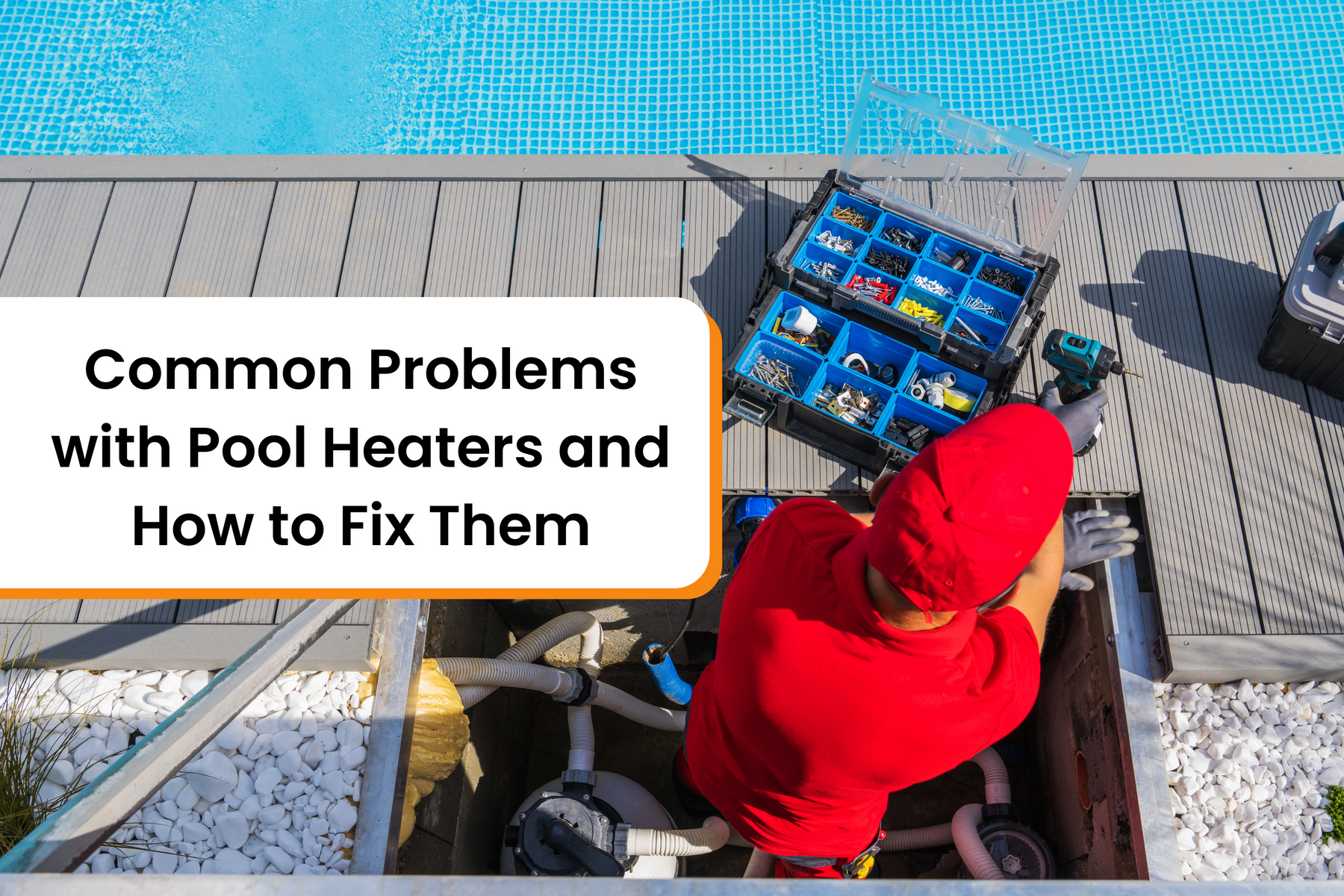
Common Problems with Pool Heaters and How to Fix Them
Common Pool Heater Problems and Their Causes
Is your pool heater throwing a tantrum? From ice-cold water to weird clunks and mystery smells, pool heaters can act up in the most inconvenient ways.
Most common problems include power issues, dirty filters, thermostat faults, and leaks. Learn how to fix these issues fast and get back to swimming without freezing.
Heating Performance Issues: Why Your Pool Heater Fails to Heat
So your pool heater is on, but the water’s still cold. One of the top reasons is weak water flow. Clogged filters, a dirty pump basket, or a worn-out pump can all choke off circulation. And without steady flow, your heater just won’t work right.
Another sneaky problem? A thermostat that’s either set too low or completely off-kilter.
It might think your water’s already warm when it’s clearly not.
Size matters too. If your heater is too small for your pool, it’ll constantly struggle to catch up - especially on chillier days. Gas models might also deal with low pressure or blocked lines, while electric ones can shut down from tripped breakers or bad elements.
Mechanical and Physical Failures: Leaks, Corrosion, and Unusual Noises
Let’s talk puddles, popping noises, and that weird burnt smell.
Leaks are usually easy to spot - look for drips or wet spots around the base. They’re often caused by cracked heat exchangers, worn-out seals, or corrosion from bad water chemistry.
If your heater’s groaning like it ran a marathon, you might have scale buildup. Hard water minerals can clog up the inside and make your system overheat or rumble.
And corrosion? That’s what happens when your pool water goes out of balance for too long. Rusty parts don’t just look bad - they lead to big repairs fast if left unchecked.
Weird smells can also be a sign of gas leaks, dirty burners, or blocked vents.
If something smells off, it probably is.
Troubleshooting, Repair, and Prevention
Initial Steps: Can You Fix It Yourself?
You’d be surprised how often the fix is something small. First, check if the heater is actually getting power.
Is the breaker tripped? Is the gas valve open? These are easy wins.
Next, clean out your filters and baskets. Dirty systems work harder, and sometimes not at all.
Make sure your pump is on and the water's moving well.
If your heater still won’t fire up, take a look at the display or pilot light.
Some models just need a quick reset or a basic cleaning. Others might flash an error code that points you in the right direction.
The trick is knowing when to stop and call in backup.
When to Call a Professional: Expert Pool Heater Repair
If there’s a gas smell, visible damage, or strange noises that won’t quit - don’t guess. Call a pro.
There are things only certified techs should touch, like cracked exchangers or deep electrical issues.
Professionals also have the tools to test pressure levels, clean heat exchangers properly, and handle repairs under warranty.
If your heater is still new, trying to DIY a complex fix could void your coverage.
Bottom line? If you’re unsure or uncomfortable, it’s worth having someone take a look.
Maintaining Your Pool Heater: Preventing Future Failures
Want to skip the drama next season? Stick to a simple maintenance routine.
Clean filters and baskets weekly. Check your water chemistry regularly - balanced water means less corrosion and scale.
Keep leaves and junk away from the heater area, and make sure there’s good airflow.
At the end of the season, shut off power or gas and drain the unit if needed. This protects it from freeze damage.
If you’re shopping for a new unit or replacement parts, always go with trusted gear.
A little effort now saves a ton of repairs later. Keep your pool heater happy, and it’ll keep your water warm when you need it most.
Related reading:



Leave a comment